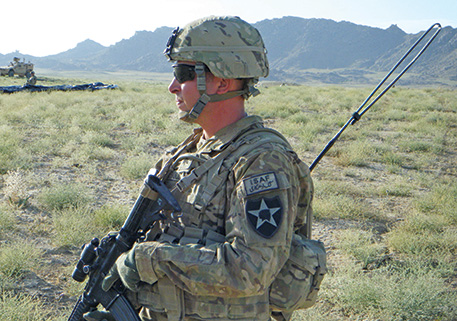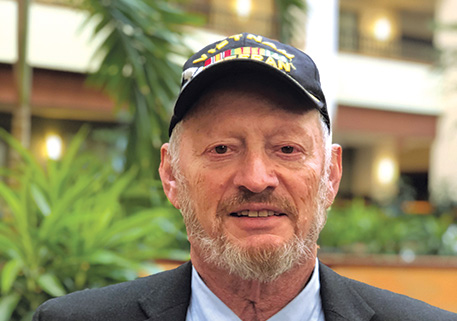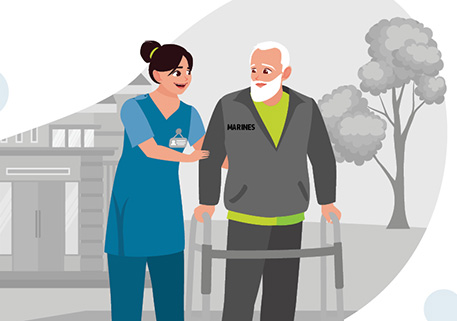 Veterans, medical groups respond to VA’s proposed access standards
Veterans, medical groups respond to VA’s proposed access standards
In late February, the Department of Veterans Affairs unveiled long-awaited proposals to reform the veterans health care system through the new Veterans Community Care Program (VCCP) network, under the VA MISSION Act.
The proposed rule, which would take effect in June, would set wait time requirements to 20 days for primary and mental health care and 28 days for specialty care, and drive time requirements to 30 minutes for primary or mental health care and 60 minutes for specialty care. These access standards, however, would apply only to the VA, not to community providers. Notably, the proposed standards also fail to include quality standards to which non-VA care providers would be held.
“As they are written, these proposals do not achieve the broadly understood goals and objectives of the VA MISSION Act,” said Washington Headquarters Executive Director Randy Reese.
While DAV and more than 30 other veterans organizations supported this legislation for its potential to improve the quality of health care and expand access, that support was based on assurances from Congress and VA leadership that it would be implemented in full collaboration with stakeholders.
“Unfortunately, since the passage of the bill, VA has primarily acted unilaterally rather than in collaboration with Congress or veterans groups,” said Reese.
In public comments posted to the Federal Register, DAV and numerous other veterans and medical organizations opposed the proposed rules as currently drafted because they are significantly flawed, inconsistent and difficult if not impossible to implement by the June 2019 deadline.
“The community care program, which the department proposes to implement within just a few months of unveiling it, would usher in an unprecedented, radical restructuring of veterans’ care that is neither required nor foreseen by Congress in passing the MISSION Act,” said Ralph Ibson, who, in addition to his former role as staff director of the House Subcommittee on Health, also served as a member of the staff of the Commission on Care in 2016.
VA Secretary Robert Wilkie testified in late March before the Senate Veterans’ Affairs Committee, asking for a funding increase of $4.6 billion in 2020 for the VCCP. Still, some have voiced concern over the potential cost of the plan and where that funding will come from.
“We are greatly concerned that, absent increased and dedicated funding by Congress … funds may be diverted from traditional medical services within the Veterans Health Administration or other VA services,” noted Ana Maria Lopez, president of the American College of Physicians.
In congressional testimony in April, DAV urged the VA to delay the rollout of the new proposed access standards.
“Until the VA can certify that it can meet the proposed lower wait time access standards and has tested and can successfully operationalize the new drive-time standards with minimal disruption, the VA should continue to use the existing access standards of the Veterans Choice program,” said Deputy National Legislative Director Adrian Atizado.
Urgent care
Since 2015, DAV has been calling for an urgent care benefit to be made part of the VA’s medical benefits package, as it is typically less costly than emergency treatment and encourages patients to use the appropriate avenues to address their health care needs.
As part of the MISSION Act, and for the first time ever, the VA’s new proposed rule would authorize eligible veterans (those enrolled in the VA health care system and who have received VA care or services within 24 months prior to accessing a walk-in care clinic) access to urgent care from qualifying non-VA facilities without prior approval.
The rule also states that if a veteran is required to make a copayment for care at a VA facility, they may also be required to pay a copayment for accessing urgent care. If veterans do not have a copayment at the VA, they will have three free urgent care visits per year. These veterans may be charged a copayment for any additional walk-in visits within that calendar year.
“We fully support the addition of an urgent care benefit for veterans and have for a number of years, but we oppose any requirements to impose a copayment on service-connected veterans in order to access it,” said National Legislative Director Joy Ilem.
Ilem also noted that the copayment proposals contradict the VA’s current copayment policy for care provided in VA facilities and runs counter to outlines within the MISSION Act requiring that veterans not pay more for community care than they would for comparable services at the VA.






